1. Could you please provide a brief about when the company started and why this particular product?
Palmex Oceania (Fiji) Limited was incorporated in Fiji in November 2011 after a few years of research into the viability of introducing a synthetic roof thatching product for use in the rapidly developing Tourist Industry and, in particular, by the many Tourist Resorts and Hotels throughout the Fiji Islands.
Fiji has traditionally used Soga palm leaves for roof thatching because it was readily available and easily accessible along Fiji’s coastline. However, because of the big demand for Soga palm leaves for roof thatching by Hotels and Resorts in Fiji and the unsustainable harvesting for palm heart over the last 20 years, the Soga Palm is now an endangered species.
Indeed, currently there are only a small number of isolated stands of the Soga Palm being managed and protected by RiversFiji in the Upper Navua Conservation Area.
We, at Palmex Oceania (Fiji) Limited, are committed to preserving Fiji’s unique natural ecosystems and by providing an environmentally friendly alternative roofing material to service the needs of Tourist Resorts, Hotels and private Homeowners, we believe the demand for Soga Thatching will greatly diminish and thereby allow the Soga Palm to once again be sustainably managed in Fiji.
Based on the growing demand for synthetic thatching throughout the world, we believed that Fiji was ready to be introduced to Palmex Synthetic Thatching.
However, as with all businesses, we considered the risks and the possibility of failure but we were encouraged by many Resort and Hotel Owners who advised us that synthetic thatching was the perfect product for Fiji and would be welcomed. So, on that basis we imported our first container of material from our Canadian manufacturers.
Palmex Synthetic Thatching is the premium thatching material in the world made from High Density Polyethylene (HDPE) and has a life span of over 50 years. It is not attractive to birds, insects, spiders, moss, mildew and all the other issues/problems associated with natural thatching. It has a natural appearance which is virtually identical to natural palm leaves and is 100% recyclable.
In addition, we can provide a fire retardant option which is designed to be used in public areas which greatly reduces the risk of vandalism and damage by people.
We provide a 20 year written warranty on all the products and many of the Tourist Resort and Hotels are now becoming aware that once it is installed, it provides a 100% waterproof, maintenance free (ie no mess to clean up every day) aesthetically pleasing roof. In addition, full tourist occupancy can be assured as there is no need to close off accommodation every 2/3 years to replace or maintain the thatching.
Palmex Synthetic Thatching is easily installed and has a certified wind resistance to 170km/hour. Indeed, our Palmex Synthetic Thatching withstood the full force of Cyclone Evan last December when gusts of up to 270kms/hour were experienced on Denarau Island. We did not lose one leaf or sustain any damage on any of our installations.
2. In terms of progress, how has the company fared over the past five years or since its inception?
Since 2011, Palmex Oceania (Fiji) Limited has gradually grown and we now have offices/warehouses in both Suva and Denarau Island. Every completed installation of Palmex Synthetic Thatching is receiving glowing testimonials and our clients are appreciating that the product is 100% waterproof which requires absolutely no maintenance.
Apart from setting up the offices and warehouses on both sides of Viti Levu, we have invested in motor vehicles, scaffolding, ladders and supported local hardware suppliers.
We are also keen to work with the Government, City Councils and Social Clubs to install Palmex Synthetic Thatching on their buildings where they want to provide an aesthetically pleasing thatched roof which is so commonly reflected in traditional Fijian architecture.
3. The company has noted successful projects on various resorts. Would you say there is a good demand for your product, considering our booming tourism industry?
Yes, over the last 12 months, we have been very fortunate to be able to successfully supply and install Palmex Synthetic Thatching on many Tourist Resort and Hotels in Fiji. These have included,
- Sofitel Resort and Spa, Denarau
- Wyndham Vacation Resort, Denarau
- Radisson Blu Resort Fiji, Denarau
- Musket Cove Island Resort
- Likuliku Lagoon Resort
- Suva Holiday Inn
- Toberua Island Resort and
We have also installed our product on many privately owned poolside bures throughout Fiji, including the High Commissions of Australia and New Zealand.
Recently we received enquiries from Vanua Levu and Taveuni, so it appears that the Palmex brand is becoming better known and the product is seen as an attractive investment.
4. In terms of challenges, what would be some major drawbacks of operating in Fiji?
At the moment we don’t see any major drawbacks for operating our business here in Fiji. As long as the Government continues to actively support the Tourist Industry to establish Fiji as the No 1 Tourist Destination in the South Pacific, the Tourist Resorts and Hotels will be encouraged to further invest and, in doing so, assist the Fiji economy which will allow the growth of small companies like Palmex Oceania (Fiji) Limited.
As I said, we at Palmex Oceania (Fiji) Limited, are committed to conserving Fiji’s unique natural heritage and recently we became Gold Members of NatureFiji Mareqeti Viti in order to support their campaign to halt the decimation of the last few natural stands of the Fiji Sago Palm. This palm is highly threatened by the clearing for agriculture or the unsustainable harvesting for palm heart and thatching.
In addition, we are sponsoring our own contestant in this year’s Vodaphone Hibiscus festival. She will be known as Miss Palmex Oceania and all her fundraising efforts will be directed to NatureFiji Mareqeti.
5. With your parent company in Canada, do you also act as a middleman supplier to other Pacific regions? If so, how has that progressed?
Palmex Oceania (Fiji) Limited have secured the exclusive distribution rights of Palmex Synthetic Thatching for the whole of the South Pacific but excluding the Cook Islands and French Polynesia. We have made tentative plans to expand into Fiji’s closer neighbours like Tonga and Samoa but at this stage we are concentrating on Fiji.
6. In terms of employment, how many local staff have benefited since the company started?
Our largest investment has been in the training and upskilling of our full time and part time staff and, in particular, our Palmex installers. They have been trained at special workshops and on-the-job and we now have a team of honest, hard working and proud Palmex employees who are particularly aware of their OH and S responsibilities.
7. What other plans does the company have in the next five years?
We are fully committed to expanding our business at the moment and working with NatureFiji Mareqeti to protect the Soga Palm. However, we are always looking for other areas of investment in Fiji and would welcome any approaches from suitably interested investors. We will also be looking at other possible markets in neighbouring countries.
8. Any other comment regarding this issue?
As part of our sponsorship of Miss Palmex Oceania in this year’s Vodaphone Hibiscus Festival, we want to advise and educate the Fijian public of the importance to conserve and sustainable manage Fiji’s natural heritage. We will be manning a Palmex Bure at Albert Park during the Festival.
In conclusion, we would like people to know that by choosing and using synthetic products, like Palmex Synthetic Thatching instead of the endangered Soga Palm for your roofing needs at their Tourist Resort, Hotel or poolside Bure in Fiji, they are directly assisting in the conservation of the endangered Soga Palm Tree and the wetland ecosystem it grows in.
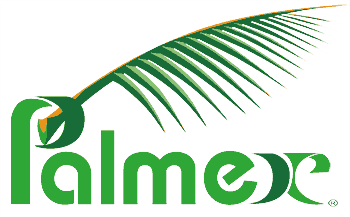
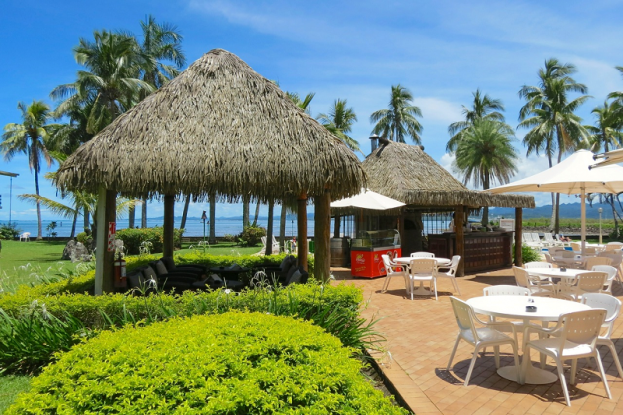
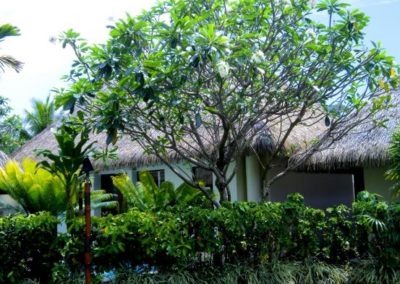
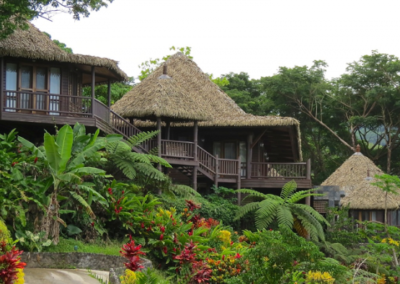
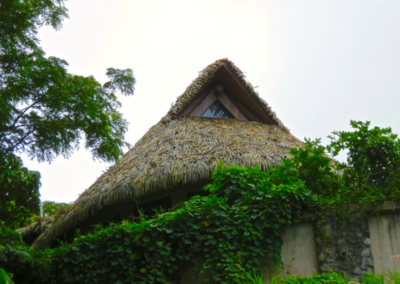
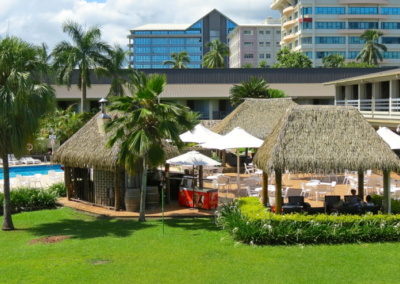
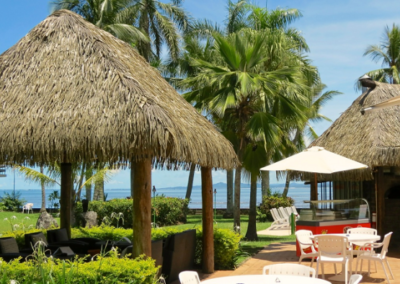
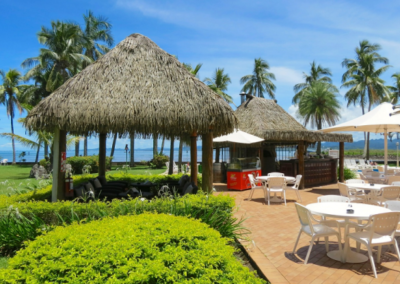
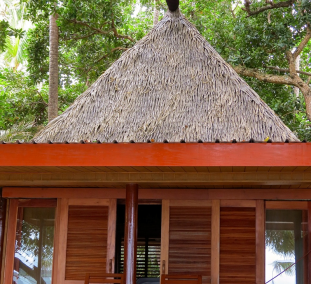
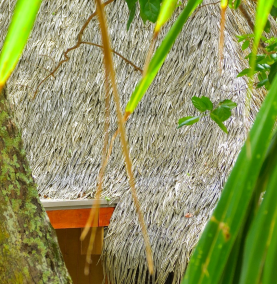
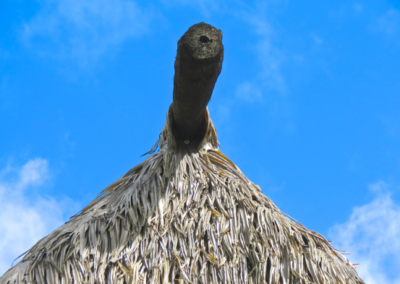
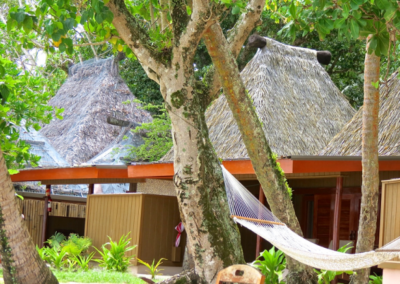
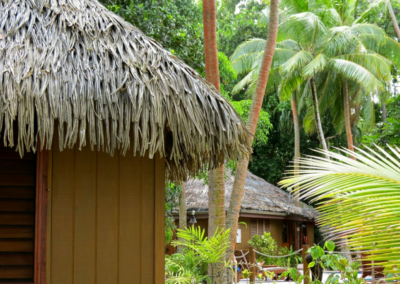
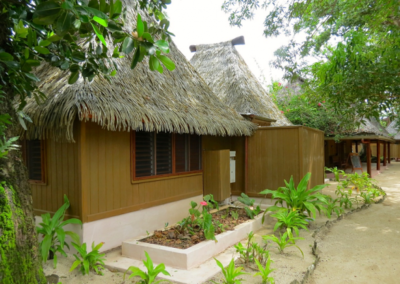
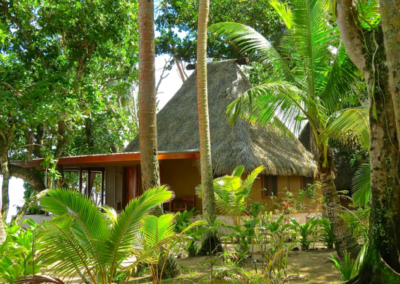
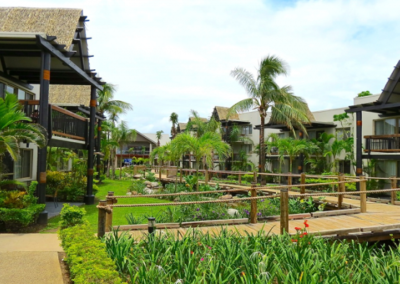
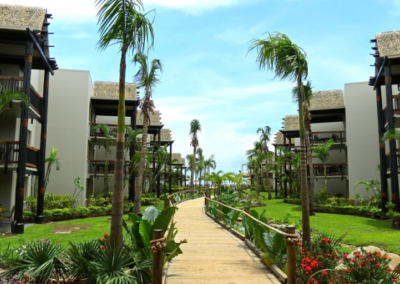
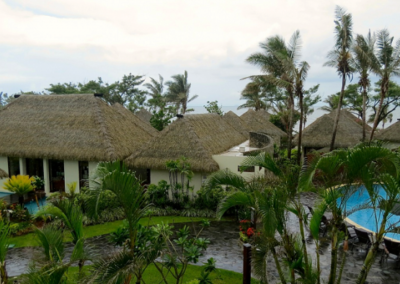
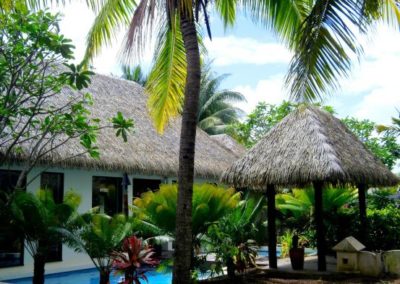
Recent Comments